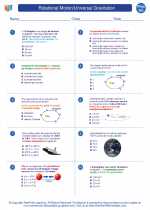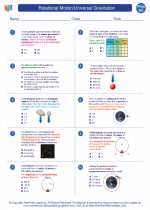Niacin
Niacin, also known as vitamin B3, is a water-soluble vitamin that plays a crucial role in energy production, DNA repair, and cell signaling. It is essential for the proper function of the nervous system, digestion, and skin health. Niacin is found in many foods, including meat, fish, eggs, and green vegetables. It is also available as a dietary supplement.
Functions of Niacin
Niacin is involved in several important bodily functions, including:
- Energy Production: Niacin is a key component of the coenzymes NAD (nicotinamide adenine dinucleotide) and NADP (nicotinamide adenine dinucleotide phosphate), which play a critical role in energy production through the metabolism of carbohydrates, fats, and proteins.
- DNA Repair: Niacin is essential for the repair of damaged DNA, helping to maintain the integrity of the genetic material in cells.
- Cell Signaling: Niacin is involved in cell signaling processes, helping to regulate various physiological functions in the body.
- Cholesterol Management: Niacin has been shown to help lower levels of LDL cholesterol and triglycerides while increasing HDL cholesterol, making it beneficial for cardiovascular health.
- Skin Health: Niacin plays a role in maintaining healthy skin, and its deficiency can lead to a condition known as pellagra, characterized by dermatitis, diarrhea, and dementia.
Sources of Niacin
Niacin can be obtained from a variety of food sources, including:
- Meat (beef, pork, poultry)
- Fish (tuna, salmon)
- Eggs
- Nuts and seeds
- Green vegetables (peas, broccoli, spinach)
- Whole grains
Niacin Deficiency and Toxicity
A deficiency of niacin can lead to a condition called pellagra, characterized by symptoms such as dermatitis, diarrhea, dementia, and in severe cases, death. On the other hand, excessive intake of niacin through supplements can lead to niacin toxicity, causing symptoms such as flushing, itching, liver damage, and digestive issues.
Recommended Intake
The recommended dietary allowance (RDA) for niacin varies by age and gender. For adult males, the RDA is 16 mg per day, while for adult females, it is 14 mg per day. Pregnant and breastfeeding women may require higher amounts. It's important to obtain niacin from a balanced diet rather than relying solely on supplements to avoid the risk of toxicity.
Study Guide
When studying niacin, it's essential to focus on its functions, sources, deficiency symptoms, and recommended intake. Here are some key points to include in your study guide:
- Describe the role of niacin in energy production and metabolism.
- List the food sources of niacin and explain how to incorporate them into a balanced diet.
- Discuss the symptoms and consequences of niacin deficiency, particularly focusing on pellagra.
- Explain the potential risks of niacin toxicity and how to avoid excessive intake.
- Summarize the recommended dietary allowance for niacin and the specific requirements for different age groups and genders.
Understanding the importance of niacin in the body and the potential impact of its deficiency or excess intake is crucial for anyone studying nutrition, biochemistry, or human physiology.
.◂Physics Worksheets and Study Guides High School. Rotational Motion/Universal Gravitation

 Worksheet/Answer key
Worksheet/Answer key
 Worksheet/Answer key
Worksheet/Answer key
